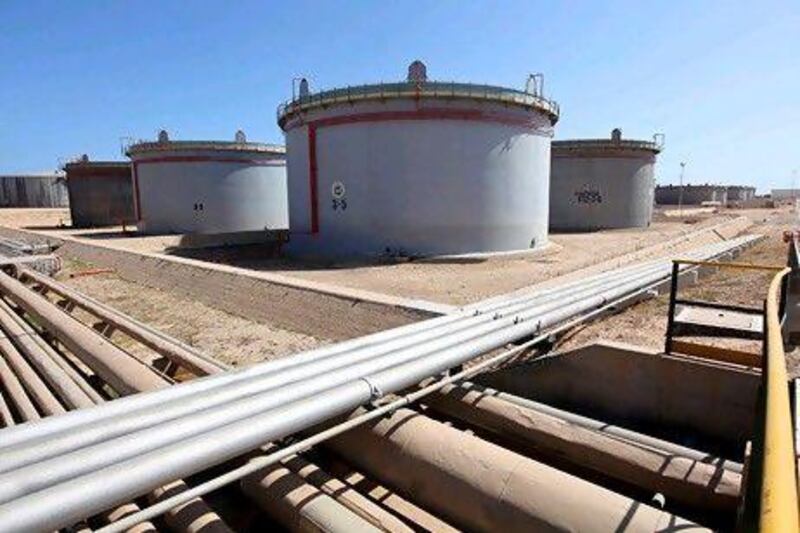Libya's oil and gas sector edged closer to prewar normality after two foreign oil majors delivered different assessments on their operations in the country.
BP this week announced it would resume exploration work under a Qaddafi-era deal that is shrouded in controversy, while its Anglo-Dutch counterpart Royal Dutch Shell decided to discontinue its search for hydrocarbons in the Maghreb's largest producer.
Like the other foreign oil companies active in Libya, BP last spring pulled out when the country became engulfed in the civil war that led to the overthrow of Qaddafi.
The international oil companies involved in the production of 1.8 million barrels per day (bpd) of Libyan oil swiftly returned after the opposition National Transitional Council ended Qaddafi's nearly 40-year reign.
Since then, the oil sector's recovery has been remarkable, and pumps that were idle during the conflict now produce 1.5 million bpd and are expected to reach prewar production next month.
BP's re-entry has been more gradual, in part because it does not forgo oil revenue by going slowly. On Tuesday, it declared an end to force majeure - the legal mechanism under which it suspended its operations. The company will resume its work together with Libya's National Oil Company (NOC) in the coming months.
The agreement with the NOC was a "significant milestone in BP's plans to return to the exploration of onshore and offshore blocks", said Michael Daly, BP's executive vice president for exploration.
Shell has meanwhile decided to abandon its search for hydrocarbons in Libya.
"Despite an extensive seismic and drilling campaign in these licences, results have been disappointing, and further exploration cannot be economically justified," a Shell spokesman said.
The differing fortunes of the two companies reflect the patchy return on investment that exploration work in the North African country has yielded.
"Exploration in Libya has been a mixed bag," said Samuel Ciszuk, an analyst at KBC Energy Economics. "There have been quite a few disappointments, but also a few discoveries being made."
The acreage that BP is developing with the NOC is one of the most promising, added Mr Ciszuk, and the company entered the deal hoping to find enough natural gas to justify a liquefied natural gas export terminal.
The project, which is mainly offshore and in deep waters, is one of BP's biggest searches for new resources, and the deal cost the company US$900 million (Dh3.3 billion) when it was struck in 2007.
It also quickly became highly controversial, with allegations that the British company had been granted the exploration licence in return for the release from prison of Abdelbaset Ali Al Megrahi, who had been convicted of the 1988 bombing of a US airliner over Lockerbie, Scotland.
BP denied the allegations, but admitted to lobbying for Mr Megrahi's release.
BP has given no clear dates on when exploration will resume. A spokesman said that progress is to be determined by the security situation on the ground.
The interim government's fragile control over the country is undermined by militia groups, so far preventing the deployment of more sophisticated technology to sustain production in older oilfields.
twitter: Follow and share our breaking business news. Follow us
iPad users can follow our twitterfeed via Flipboard - just search for Ind_Insights on the app.





